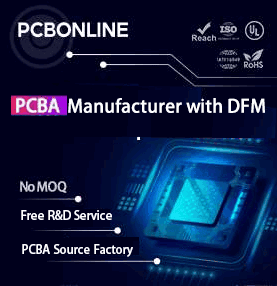Exponential technologies double their performance in each period and solve problems that businesses and society face in new ways. Technological innovation is when new products and services are developed in the marketplace to address society’s unfulfilled needs. Currently, technological innovation is increasing exponentially and will continue to have one of the most significant impacts in the healthcare sector. Some examples of exponential technologies include artificial intelligence (AI), virtual reality (VR), drug development, healthcare trackers, and augmented reality (AR).

These technologies are becoming more and more common in everyday life. Medical exponential technologies have far-reaching effects and play a significant role in shaping the future of healthcare by lowering costs and improving care.
Lower Healthcare Costs
The healthcare space might feel the most significant impact of big data processing. Healthcare is costly, inefficient, and unequal. The mass adoption of these kinds of technologies can change society for the better. AI, blockchain, and other technologies can work to lower the cost of healthcare, which can, in turn, bolster efficiency and equity. Further, AI can offer predictive and personalized health care at a lower cost.
Artificial Intelligence
AI can be used to advance healthcare and improve health outcomes in society. AI can identify diseases and create drugs faster and more effectively than medical professionals. For example, DeepMind Technologies, an AI company acquired by Google, developed an AI tool that claims to be capable of detecting breast cancer from mammograms more efficiently than human radiologists. The model outperformed radiologists by 11.5% in the early stages of the trial. Although further clinical studies are needed, the results depict how this technology can potentially be a second reader to assist radiologists and reduce false positives. This instance represents the role of AI in shaping the future of cancer care.
Augmented Reality
AR uses a real-world setting and can be accessed on a smartphone. This scenario is different from Virtual Reality, which is a physical immersion experience into a virtual environment that takes people out of the outside world. AR can be a primary technology in the healthcare space because it offers users information very quickly and keeps them in touch with the physical world. In the medical field, AR is when a computer-generated context is superimposed over a live view of the world.
AR can enhance medical imaging for CT or MRI data during a surgical procedure by superimposing stereoscopic projections. These projections can depict crucial information to surgeons about navigating to an organ or localization of tumors when the anatomy is challenging. Another way that AR can be implemented in the medical space is for medical training for doctors and students. Medical students can learn new concepts and prepare for real-world applications, while surgeons can enhance their capabilities with new therapies and drugs.
Drug Development
New technologies can decrease the amount of time it takes to develop drugs. One way this can be done is through in silico trials. Companies can test their drug in “virtual patients” using simulation methods and computation modeling before testing them out in humans. In silico trials can better detect an early failure in the drug development cycle, saving time and reducing costs. The future of healthcare can benefit from producing successful drugs in a shorter time.
The Intersection of Exponential Technologies
When two or more exponential technologies are applied to a challenge society is facing, it is more likely that they generate a long-lasting, effective solution. For example, a medical device that uses AI to figure out the likelihood of someone getting a disease illustrates how the intersection of exponential technologies can generate improved outcomes in health care. It is crucial to consider how the convergence of technologies and the resulting effects can impact online trading in the healthcare sector.
The Bottom Line
The widespread adoption of exponential technologies could significantly impact the healthcare sector. These technologies improve patient care, increase efficiency, and reduce costs. Significantly, exponential technologies can transform people’s lives for the better.
First, AI can diagnose diseases in conjunction with medical professionals and come up with treatment plans. Therefore, AI can increase efficiency and accuracy. Second, AR can bolster medical training for students and doctors and increase precision in surgical procedures. Third, exponential technologies can improve and speed up the drug development process through in silico trials. Finally, when these technologies are used together and have a mainstream implementation, they can have even greater positive societal outcomes.

